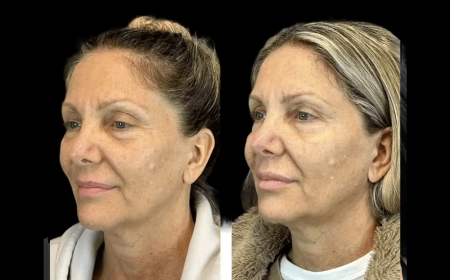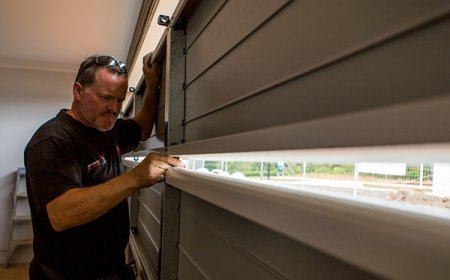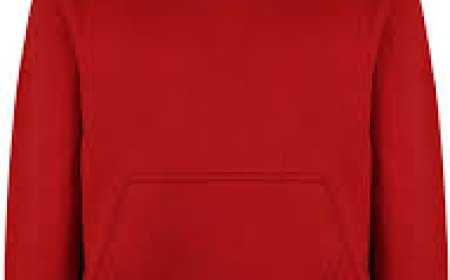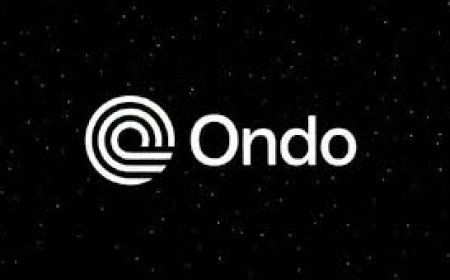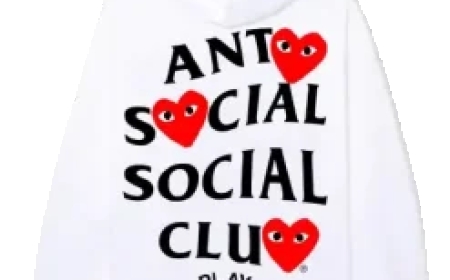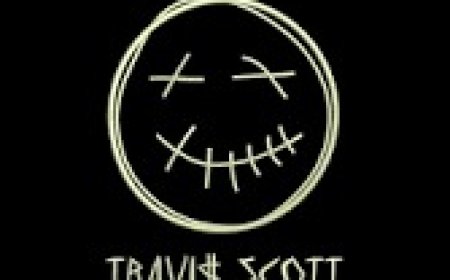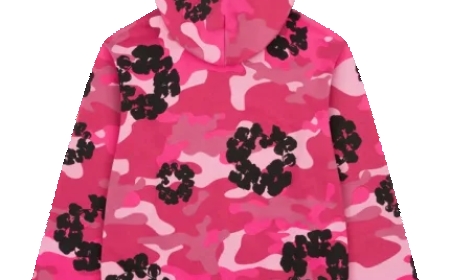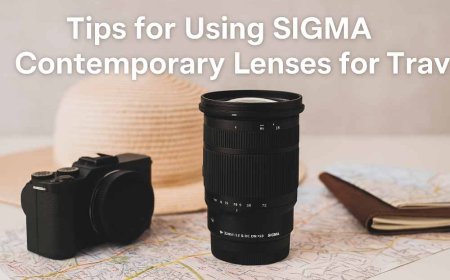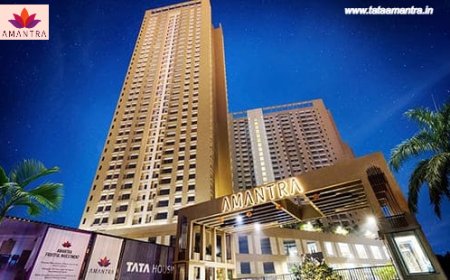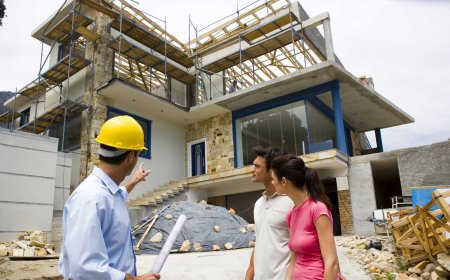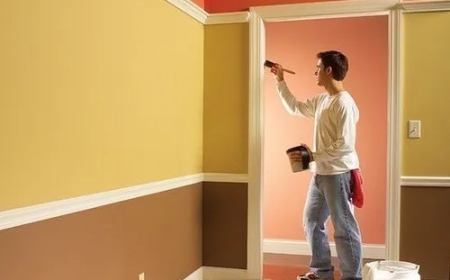Top 10 Antique Markets in Las Vegas
Introduction Las Vegas is often associated with glittering casinos, high-energy shows, and luxury resorts—but beneath the neon glow lies a quieter, more enduring culture of collecting, curating, and commerce. Antique markets in Las Vegas offer a treasure trove of mid-century furniture, vintage jewelry, rare books, retro signage, and forgotten artifacts from across decades. Yet, not all markets are
Introduction
Las Vegas is often associated with glittering casinos, high-energy shows, and luxury resorts—but beneath the neon glow lies a quieter, more enduring culture of collecting, curating, and commerce. Antique markets in Las Vegas offer a treasure trove of mid-century furniture, vintage jewelry, rare books, retro signage, and forgotten artifacts from across decades. Yet, not all markets are created equal. With the rise of mass-produced replicas and unverified sellers, finding a trustworthy antique market has become more challenging than ever. This guide cuts through the noise to present the top 10 antique markets in Las Vegas you can truly trust—each vetted for authenticity, vendor integrity, consistent inventory, and customer reputation. Whether you’re a seasoned collector, a design enthusiast, or simply hunting for a unique gift, these venues offer more than just objects—they offer stories with provenance.
Why Trust Matters
In the world of antiques, trust is not a luxury—it’s the foundation. Unlike mass-market goods, antique items carry historical, emotional, and often financial value that cannot be easily replicated. A misattributed piece of Art Deco furniture, a forged vintage watch, or a misrepresented Native American artifact can lead to disappointment, financial loss, or even legal complications. Trustworthy antique markets prioritize transparency, expertise, and ethical sourcing. They employ knowledgeable staff who can provide provenance, date ranges, and restoration histories. They do not pressure buyers with inflated claims. They stand behind their items with clear return policies and honest descriptions.
Las Vegas, as a transient city with a high volume of tourists and short-term residents, has seen its share of pop-up markets and fly-by-night vendors. Some operate under the guise of “antique fairs” but sell imported reproductions labeled as “vintage.” Others misrepresent condition, hide damage, or inflate prices without justification. The markets featured in this guide have been selected based on multi-year consistency, positive community feedback, third-party reviews, vendor turnover rates, and the presence of certified appraisers or historians on-site. These are not just places to shop—they are institutions built on credibility.
When you shop at a trusted market, you’re not just buying an object—you’re investing in a legacy. You’re supporting local artisans, preserving cultural history, and contributing to a sustainable economy of reuse and appreciation. This guide ensures that your next antique find is not only beautiful but also authentic, ethical, and worth every penny.
Top 10 Antique Markets in Las Vegas
1. The Vegas Antique Mall
Located in the heart of North Las Vegas, The Vegas Antique Mall has been a cornerstone of the city’s antique scene since 1998. Spanning over 50,000 square feet, it houses more than 200 individual vendor booths, each carefully vetted for authenticity and product quality. The mall is known for its diverse inventory, ranging from 1920s silverware and Victorian porcelain to 1970s rock memorabilia and mid-century modern lighting. What sets it apart is its strict vendor application process: each seller must provide documentation of item origins and undergo a monthly inspection by the mall’s in-house curator. Regular customers praise the staff’s ability to identify obscure items—from pre-war German camera lenses to Depression-era glassware. The mall also hosts monthly “Appraisal Days” where certified appraisers offer free evaluations (no purchase required), reinforcing its commitment to education and transparency. Parking is ample, and the layout is wheelchair-accessible, making it one of the most visitor-friendly markets in the region.
2. The Old Town Antique Center
Established in 1985, The Old Town Antique Center occupies a repurposed 1950s warehouse in the historic downtown district. Its reputation rests on its curated selection rather than volume. With only 45 high-end booths, the center attracts serious collectors and interior designers seeking rare, museum-quality pieces. You’ll find original Frank Lloyd Wright prints, 19th-century European scientific instruments, and hand-carved Chinese scholar’s desks. The owner, a former museum archivist, personally approves every item and provides detailed provenance sheets with each purchase. The center does not sell reproductions, and all items are labeled with era, origin, and condition grading. Visitors often remark on the quiet, museum-like atmosphere—no loud music, no aggressive sales tactics. It’s a place for contemplation as much as acquisition. The center also maintains an online archive of past inventory, allowing repeat buyers to track the history of items they’ve previously admired.
3. The Neon & Nostalgia Exchange
True to its name, The Neon & Nostalgia Exchange specializes in mid-20th-century Americana with a Las Vegas twist. This market is a haven for vintage casino memorabilia: original slot machine parts, hand-painted hotel signs from the Rat Pack era, vintage cocktail napkins, and signed poker chips from the Flamingo’s early days. While it focuses on Vegas history, it also carries a broad range of 1940s–1980s household items, from rotary phones to enamel kitchenware. The vendor team includes former casino employees and local historians who can tell you not just when a sign was made, but which hotel it once adorned. Authenticity is guaranteed through cross-referencing with archived hotel records and photographic documentation. The market has been featured in multiple documentaries on Vegas culture and maintains a partnership with the Las Vegas Historical Society. It’s a must-visit for anyone interested in the soul of the city’s past.
4. The Green Valley Antique & Vintage Fair
Every second Saturday of the month, the Green Valley Community Center transforms into one of the most respected outdoor antique fairs in Southern Nevada. With over 80 local vendors, this fair draws collectors from Arizona, Utah, and California. Unlike many seasonal markets, Green Valley requires vendors to submit item inventories and sourcing documentation in advance. Each booth is inspected by a rotating panel of regional antique experts. The fair is particularly strong in vintage textiles—handwoven Navajo rugs, 1930s quilts, and French linen tablecloths—and in mid-century ceramics from Japan and Scandinavia. What makes it trustworthy is its zero-tolerance policy for fakes: any vendor found selling reproductions is banned permanently. The fair also offers free educational workshops on identifying authentic pottery glazes and fabric dyes. Attendees are encouraged to bring items for informal “show and tell” sessions with knowledgeable vendors. The event is rain or shine, and all proceeds support local historical preservation grants.
5. The Silver State Collectibles Emporium
Founded by a retired Nevada State Museum curator, The Silver State Collectibles Emporium is a hybrid museum-shop that prioritizes historical accuracy above all else. Its collection includes Native American artifacts (with full tribal provenance documentation), Civil War-era military insignia, and rare Nevada mining equipment. Every item is accompanied by a certificate of authenticity signed by the curator and cross-referenced with state archives. The shop does not sell anything without verifiable origin, and items with disputed provenance are displayed with full transparency. The space is meticulously organized by era and region, making it ideal for researchers and students. The owner regularly collaborates with universities to loan items for academic exhibits. Visitors often describe the experience as “walking through a living archive.” While prices reflect rarity and condition, the owner insists on fair market value and never haggles—reinforcing the market’s integrity over profit.
6. The Desert Rose Antiques
Nestled in a quiet corner of Henderson, The Desert Rose Antiques is a boutique shop with a reputation for impeccable curation. Its inventory focuses on 19th- and early 20th-century European and American decorative arts: ormolu clocks, hand-blown Bohemian glass, and engraved silver tea services. The owner, a trained art conservator, personally restores each piece using reversible, archival-quality methods. She refuses to sell items that have been over-restored or altered for market appeal. The shop maintains a digital log of each item’s restoration history, accessible to buyers upon request. It’s one of the few markets in Las Vegas that offers a 30-day return policy for items that fail to meet condition descriptions. The shop also publishes a quarterly newsletter detailing provenance stories behind featured items—a rare practice that builds long-term trust. Regular patrons include interior designers for luxury hotels who rely on Desert Rose for authentic, understated elegance.
7. The Las Vegas Flea & Antique Market (Summer & Winter Editions)
Though technically a seasonal event, the Las Vegas Flea & Antique Market has earned a permanent place in the city’s antique landscape due to its rigorous vendor selection and consistent quality. Held twice a year in a sprawling outdoor venue near the Las Vegas Convention Center, the market features over 150 vendors who must apply six months in advance. Applications are reviewed by a committee of three independent antique dealers and a local historian. Only 30% of applicants are accepted. The market is known for its high concentration of vintage clothing, rare vinyl records, and mid-century furniture from the Pacific Northwest. Unlike many flea markets, items are clearly labeled with condition, age, and origin. There are no “as-is” sales without disclosure. The market also provides free parking, shaded seating, and on-site water stations—details that reflect its commitment to the customer experience. Many collectors plan their entire year around the spring and fall editions, knowing they’ll find pieces unavailable elsewhere in the region.
8. The Historic Downtown Vintage Vault
Tucked into a restored 1920s bank building, The Historic Downtown Vintage Vault is a treasure chest of curated ephemera. Its specialty is paper-based antiques: original movie posters from the 1930s–1960s, vintage maps of Las Vegas, first-edition travel brochures from the Hoover Dam construction era, and handwritten letters from early settlers. The owner, a former librarian, has spent decades collecting and cataloging these fragile items under climate-controlled conditions. Each poster and document is authenticated using UV light, watermark analysis, and ink dating. The vault does not sell reproductions—even high-quality ones—and displays the original source material for every item. It’s a haven for historians, filmmakers, and designers seeking authentic period details. The shop limits daily visitors to 50 to preserve the quiet, scholarly atmosphere. Appointments are encouraged, but walk-ins are welcome during limited hours. Its reputation for integrity has made it a go-to resource for museum exhibitions and period film sets.
9. The Nevada Heritage Exchange
Located near the Valley of Fire, The Nevada Heritage Exchange is a community-driven antique market focused on preserving the cultural artifacts of Nevada’s rural and indigenous communities. Vendors include descendants of Paiute and Shoshone families who sell authentic basketry, beadwork, and ceremonial items with full lineage documentation. The market strictly adheres to NAGPRA (Native American Graves Protection and Repatriation Act) guidelines and refuses to sell any item that could be considered sacred or culturally sensitive without proper authorization. In addition to Native artifacts, it carries vintage mining tools, cowboy gear, and pioneer-era household items from the state’s early settlements. The market partners with the University of Nevada’s anthropology department to host monthly lectures on cultural preservation. All profits fund educational programs for tribal youth. It’s not just a marketplace—it’s a cultural sanctuary built on mutual respect and ethical stewardship.
10. The Artisan & Antique Collective
The Artisan & Antique Collective is a cooperative space where local craftspeople and antique dealers share inventory under one roof. Founded in 2015, it operates on a democratic model: vendors vote on new members, set pricing guidelines, and co-host educational events. The result is a uniquely curated mix of handcrafted reproductions (clearly labeled as such) alongside genuine antiques from the 1800s to the 1980s. The collective is known for its exceptional selection of vintage typewriters, scientific glassware, and hand-forged ironwork. What makes it trustworthy is its transparency: every item is tagged with the vendor’s name, origin, and whether it’s original or reproduction. The space hosts weekly “Meet the Maker” events where buyers can speak directly with artisans about restoration techniques and material sourcing. It’s a rare example of a market where the community itself upholds its standards—no corporate oversight, no pressure sales, just honest conversation and shared passion.
Comparison Table
| Market Name | Specialization | Vendor Vetting | Provenance Documentation | Return Policy | Frequency |
|---|---|---|---|---|---|
| The Vegas Antique Mall | General antiques, mid-century, memorabilia | Monthly inspections, vendor applications | Provided for high-value items | 14-day exchange | Year-round |
| The Old Town Antique Center | Museum-quality European & American decor | Owner-approved, limited booths | Detailed provenance sheets for all items | 30-day return | Year-round |
| The Neon & Nostalgia Exchange | Las Vegas casino history, vintage signage | Historical cross-referencing, staff expertise | Hotel archives and photos | 10-day return with receipt | Year-round |
| The Green Valley Antique & Vintage Fair | Textiles, ceramics, regional crafts | Pre-submission review, expert panel | Condition grading on all items | No returns, but item verification on-site | Monthly (2nd Saturday) |
| The Silver State Collectibles Emporium | Native artifacts, mining, military | Certified curator approval, state archive cross-check | Certificate of authenticity with every item | No returns, but appraisals free | Year-round |
| The Desert Rose Antiques | European decorative arts, restoration | Owner is conservator, all items restored by hand | Digital restoration log available | 30-day return for condition discrepancies | Year-round |
| The Las Vegas Flea & Antique Market | Vintage clothing, vinyl, furniture | 30% acceptance rate, committee review | Clear labeling of age and origin | 7-day return for misrepresentation | Biannual (Spring & Fall) |
| The Historic Downtown Vintage Vault | Paper ephemera, posters, maps | UV and ink analysis, archival standards | Full source documentation for every item | 14-day return for authenticity disputes | Year-round (limited hours) |
| The Nevada Heritage Exchange | Native American, pioneer, rural Nevada | NAGPRA compliance, tribal verification | Lineage documentation, cultural context | No returns on sacred items; others 7-day | Year-round |
| The Artisan & Antique Collective | Typewriters, glassware, ironwork | Vendor voting, transparency policy | Vendor name and item origin tagged on all | 14-day return for mislabeling | Year-round |
FAQs
How do I know if an antique is authentic in Las Vegas?
Look for vendors who provide clear documentation—provenance sheets, restoration logs, or archival references. Reputable markets will allow you to inspect items under light, ask questions about origin, and never pressure you into immediate purchases. If an item is labeled “vintage” but lacks any details about era or maker, proceed with caution. Trustworthy sellers welcome scrutiny.
Are there fake antiques in Las Vegas markets?
Yes. Some vendors, especially in tourist-heavy areas, sell reproductions labeled as “vintage” or “antique.” The markets listed here have strict policies against this. Avoid markets where all items look identical, prices are unrealistically low, or staff cannot answer basic questions about materials or history.
Can I get an item appraised at these markets?
Many of these markets offer free or low-cost appraisal services, particularly on designated days. The Vegas Antique Mall, The Silver State Collectibles Emporium, and The Green Valley Fair all host regular appraisal events. You do not need to buy anything to receive an evaluation.
What should I bring when shopping at an antique market?
Bring a tape measure, a flashlight (to inspect details), a notebook, and a list of what you’re seeking. Wear comfortable shoes—these spaces are large. If you’re buying furniture or large items, ask about delivery options in advance. Some markets offer local hauling services.
Are prices negotiable?
At most of these markets, prices are firm due to the value and authenticity of items. However, some vendors may offer discounts for multiple purchases or during slow periods. Always ask politely—haggling aggressively is frowned upon in these communities.
Do these markets accept credit cards?
Yes, all markets listed accept major credit cards. Some smaller booths may prefer cash for lower-priced items, but digital payments are widely supported.
Are children allowed at these markets?
Most are family-friendly, but some—like The Old Town Antique Center and The Historic Downtown Vintage Vault—maintain a quiet, adult-oriented atmosphere. Check ahead if you’re bringing young children. Many markets have no restrictions but encourage respectful handling of fragile items.
Can I sell my antiques at these markets?
Yes, but only if you meet their strict vendor criteria. Markets like The Vegas Antique Mall and The Artisan & Antique Collective accept new vendors through application processes. Be prepared to provide documentation of item origins and condition. Avoid markets that charge upfront fees without vetting—that’s a red flag.
Is it better to shop online or in person?
For high-value or historically significant items, in-person inspection is essential. Photos can misrepresent condition, and online sellers often lack the expertise to verify provenance. The tactile experience of handling an item—the weight, patina, and craftsmanship—is irreplaceable. These markets offer that authenticity you can’t find on a screen.
How can I support ethical antique shopping in Las Vegas?
Choose markets that prioritize transparency, cultural respect, and historical accuracy. Avoid items that may have been looted or improperly removed from sacred or archaeological sites. Support vendors who educate buyers and reinvest in local heritage. Your choices help preserve the integrity of the antique trade.
Conclusion
Las Vegas may be a city of illusions, but its antique markets tell the truth—about craftsmanship, history, and human connection. The top 10 markets highlighted here are not merely retail spaces; they are guardians of memory. Each one has earned its reputation through consistency, integrity, and a deep respect for the objects they preserve. Whether you’re drawn to the glimmer of a 1920s Art Deco mirror, the weight of a Civil War-era revolver, or the quiet beauty of a handwoven Navajo blanket, these venues offer more than goods—they offer connection to something enduring.
When you shop here, you’re not just acquiring an object. You’re becoming part of its story. You’re supporting artisans who restore rather than discard, historians who document rather than obscure, and communities that value heritage over hype. In a world of disposable trends, these markets are sanctuaries of permanence.
Visit them with curiosity, ask questions, take your time, and trust your instincts. The best finds aren’t always the most expensive—they’re the ones that speak to you, with honesty and history. Let these ten markets be your guide to authentic, meaningful collecting in the heart of the desert.








